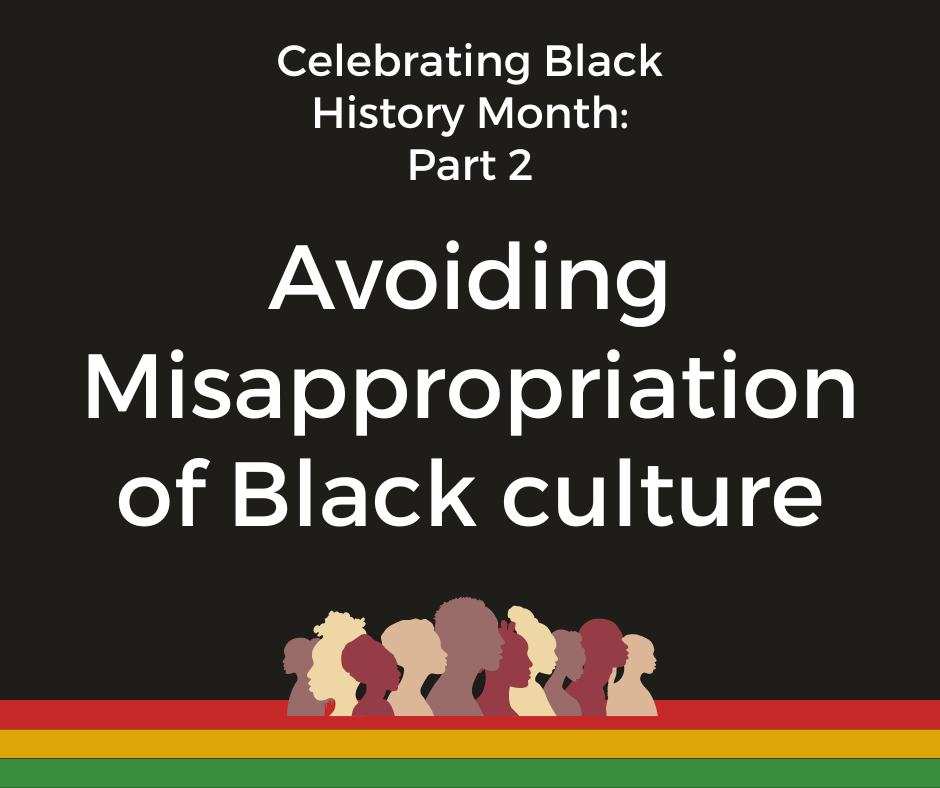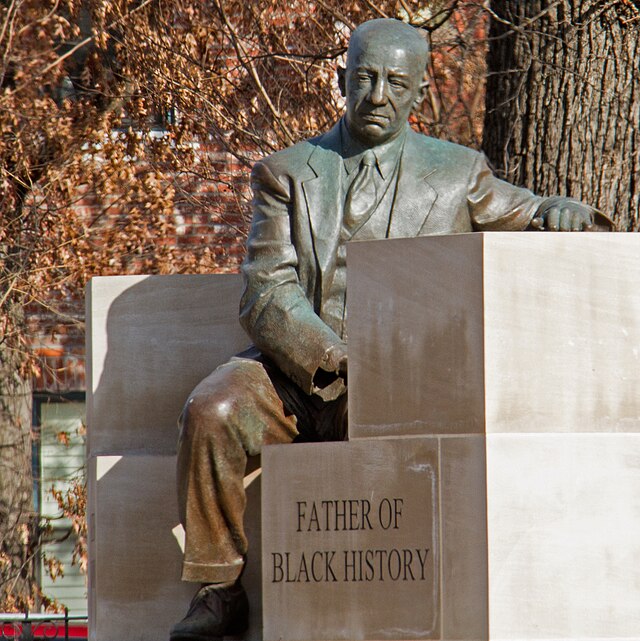Throughout the month of February, we are sharing posts written by Imagine Institute training program assistant Lourdes Flores about Black History Month. This series will follow the long history of Black History Month, Black History in the United States, and how we can all celebrate Black History Month in a way that is supportive, healthy, and, most importantly, empowering.
Focus on the Black Community
An important part of celebrating Black History Month (BHM) is to focus directly on the Black community. While nothing in the U.S. escapes commercialization, ask yourself: Why would you purchase a book on Black history from a major retailer like Target or Barnes and Noble, when you can purchase it from a Black-owned bookstore? Why would you use curriculum about BHM written by a white educator, when you can choose one written by a Black educator speaking on their own history and culture?
The ASALH website details exactly what issues can arise during Black History Month:
“By the 1930s, [Black History leader Carter G.] Woodson complained about the intellectual charlatans, black and white, popping up everywhere seeking to take advantage of the public interest in black history. He warned teachers not to invite speakers who had less knowledge than the students themselves. Increasingly publishing houses that had previously ignored black topics and authors rushed to put books on the market and in schools. Instant experts appeared everywhere, and non-scholarly works appeared from ‘mushroom presses.’ In America, nothing popular escapes either commercialization or eventual trivialization, and so Woodson, the constant reformer, had his hands full in promoting celebrations worthy of the people who had made the history.”
Things You Can Do to Celebrate Black History Month
1. Learn about different accomplishments by Black Americans. Later this month, this blog series will detail how Black Americans have enriched American life and culture, and how the fights that they faced not only benefited the Black community, but also turned America into the actual pillar for equity, inclusion, and diversity in the world.
2. Use curriculum developed by Black educators. The Center for Racial Justice in Education offers a Black History Month Resource Guide for Educators and Families with lesson plans and curriculum resources for teaching Black history all year.
3. Visit and support Black-owned businesses. You can find a list of bookstores below. Later in the series, we’ll highlight children’s books.
4.Donate to a Historically Black College and University (HBCU), or other organization specifically serving the Black community.
5. Purchase art by Black artists. Try to purchase it directly from the artists themselves to avoid loss of profits.
6. Stream or purchase music by Black artists. Later in the series, we will share songs and playlists. While most of the links shared are through YouTube, consider using platforms with paywalls or purchasing songs or albums directly to support the artists or their estates.
7. Highlight the theme of Black History Month 2024. This year is a celebration of African Americans covered as “Highlighting the Art of Resistance.” We will discuss this more later in the series.
Black-Owned Places to Buy Books in Washington
Here are some Black retailers who you can support during BHM:
1. Estelita’s Library: Black-owned shop in South Seattle that allows for online shopping for those not in the Seattle area or not able to visit these places in person. According to their website, Estalita’s Library “is a gathering place for people to share space, knowledge, and a love of reading.”
Online shopping from Estalita’s Library with shipping to anywhere is available through Bookshop.org.
2. LOVING ROOM: Diaspora Books + Salon: Independent queer Black woman-owned bookstore, community reading room, and cultural salon in Seattle. According to their website, LOVING ROOM features “various genres of literature by Black + African writers for readers of all ages. We curate a selection of new and used reading material from US-born Black authors, African, Caribbean, and other Diaspora writers to be read on-site, with a variety of new current titles available for purchase. Our collection includes Children’s and Young adult literature, as well as a vast and varied selection of Fiction and Non-Fiction works from Black writers past and present.”
The shop is home to children’s story hours, book clubs for many age groups and interests, and events such as author readings and film watch parties.
3. Parable: Family-owned, community-owned, LGBTQ+, black-owned, and woman-owned community space in Tacoma. According to their website, Parable offers “a hand-picked selection of artisan products, books, plants, records, clothing, and hot tea. Through partnerships and collaborations, we host vibrant events. We center those who are often left out of the conversation: Black, Indigenous, People of Color (BIPOC), Disabled and LGBTQ+ folk, and local artists and authors. In its fullest form Parable invites you to not just shop, but also hang out and stay a while.”
They host events and offer room rentals. Parable also features an online shop for ordering books for pickup.

